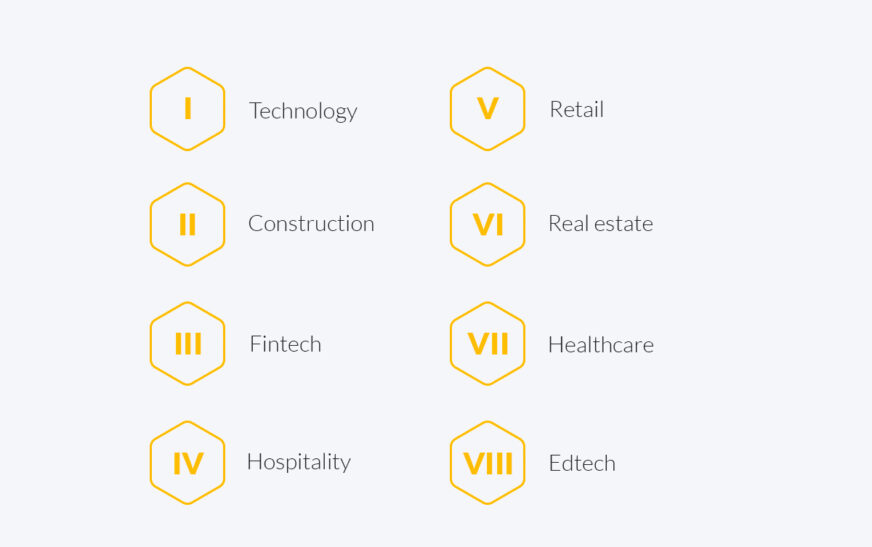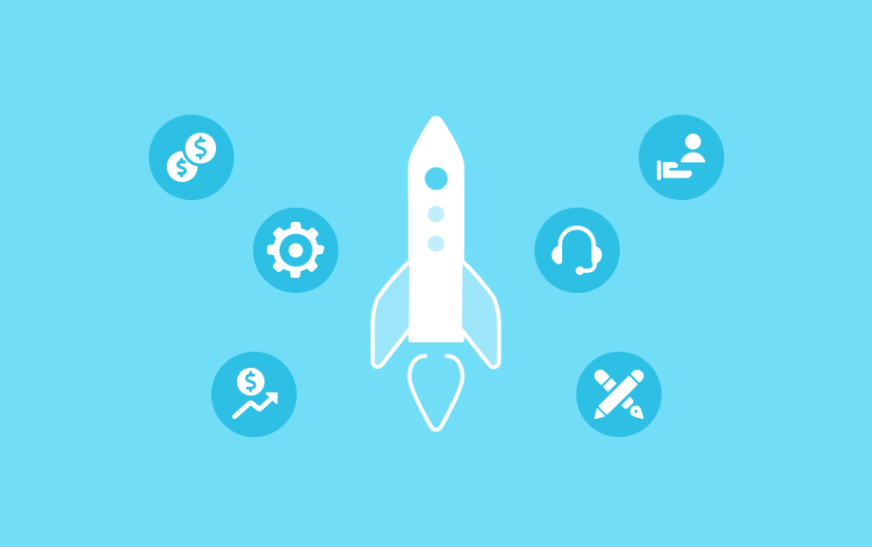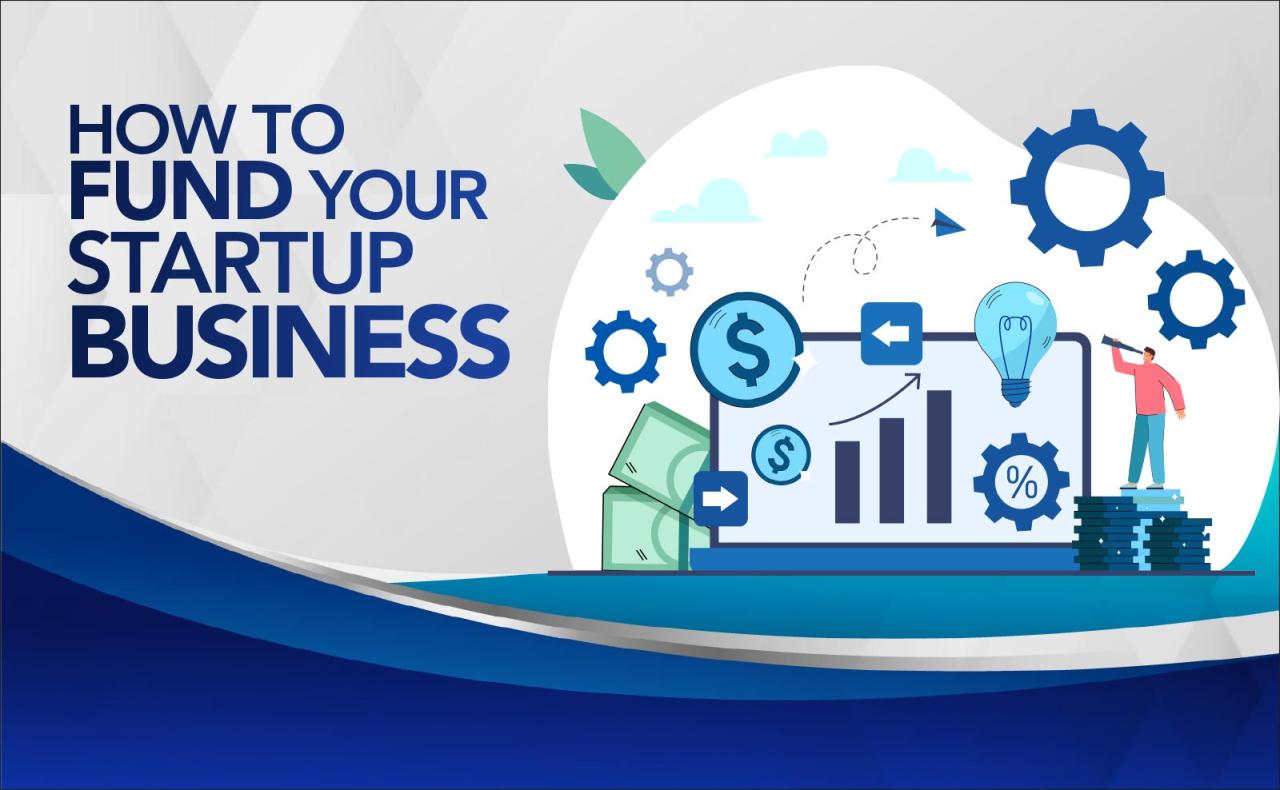Top Industries for Startups 2024 sets the stage for exploring the dynamic landscape of emerging sectors and the impact of technology on traditional industries, offering a glimpse into the future of entrepreneurship.
As we delve deeper into the potential challenges, market trends, and consumer demands shaping the startup ecosystem, a world of opportunities and innovation awaits.
Top Industries for Startups 2024
In 2024, several emerging industries are poised to thrive, offering exciting opportunities for startups to innovate and disrupt traditional markets. However, along with these opportunities come challenges that entrepreneurs must navigate to succeed in these dynamic sectors. Let’s explore some of the top industries for startups in 2024 and the factors driving their growth.
1. Artificial Intelligence and Machine Learning
Artificial intelligence (AI) and machine learning continue to revolutionize various industries, from healthcare to finance. Startups leveraging AI technologies have the potential to streamline processes, improve decision-making, and enhance customer experiences. However, challenges such as data privacy concerns and ethical implications must be addressed to gain consumer trust and regulatory compliance.
2. Sustainable Energy
With a growing focus on sustainability and environmental conservation, startups in the sustainable energy sector are well-positioned for success in 2024. Renewable energy sources, such as solar and wind power, offer innovative solutions to address climate change and reduce carbon emissions. Startups in this industry face challenges related to scalability, cost-effectiveness, and regulatory frameworks but have the opportunity to drive positive change and contribute to a greener future.
3. E-commerce and Digital Retail
The e-commerce industry has experienced significant growth in recent years, accelerated by the shift to online shopping during the pandemic. Startups in e-commerce and digital retail are capitalizing on this trend by offering personalized shopping experiences, seamless transactions, and efficient logistics solutions. However, competition in this space is fierce, requiring startups to differentiate themselves through innovative technologies, marketing strategies, and customer engagement.
4. HealthTech and Telemedicine
The healthcare industry is undergoing a digital transformation, with startups in HealthTech and telemedicine at the forefront of innovation. Telehealth services, remote patient monitoring, and AI-powered diagnostics are revolutionizing healthcare delivery and improving access to medical services. Startups in this sector face challenges related to regulatory compliance, data security, and interoperability but have the opportunity to improve healthcare outcomes and patient experiences.
5. FinTech and Digital Payments
Financial technology (FinTech) continues to disrupt traditional banking and payment systems, with startups driving innovation in digital payments, blockchain technology, and peer-to-peer lending. Startups in this industry face challenges such as cybersecurity threats, regulatory complexities, and market saturation but have the opportunity to enhance financial inclusion, streamline transactions, and improve access to capital for underserved populations.
Regional Variations in Startup Industries
In the world of startups, different regions and countries often have their own unique set of industries that thrive due to various factors such as culture, economy, and regulations. Let’s delve into how these factors influence the choice of industries for startups and how globalization plays a role in spreading startup industries across borders.
United States
In the United States, technology and innovation continue to dominate the startup landscape. Silicon Valley in California remains a hub for tech startups, with industries like artificial intelligence, fintech, and biotech leading the way. The culture of risk-taking and entrepreneurship, coupled with a strong economy and supportive regulatory environment, make the U.S. a hotspot for startups.
Europe
In Europe, there is a diverse range of startup industries across different countries. While tech startups are prominent in countries like the UK, Germany, and France, other industries such as fashion, food tech, and sustainability are also gaining traction. Cultural influences, like a focus on sustainability and social responsibility, often shape the choice of industries for startups in Europe.
Asia
Asia is a burgeoning hotspot for startups, with countries like China, India, and Singapore leading the charge. Industries such as e-commerce, fintech, and healthcare technology are thriving in this region. Economic growth, a large market size, and government support for innovation drive the startup ecosystem in Asia.
Globalization Impact
Globalization has played a significant role in the spread of startup industries across borders. Startups can now easily expand their operations to different countries, tapping into new markets and resources. The interconnected nature of the global economy has allowed for the exchange of ideas, talent, and capital, enabling startups to scale and grow beyond their local markets.
Technology Disruption in Traditional Industries: Top Industries For Startups 2024
Technology is revolutionizing traditional industries, creating opportunities for startups to enter and disrupt established sectors. By leveraging innovative solutions, these startups are challenging the status quo and reshaping the landscape of various industries. Let’s delve into how technology is driving this disruption and the impact it has on both traditional sectors and emerging startups.
Examples of Successful Startups in Traditional Industries
- Uber: Uber disrupted the traditional taxi industry by introducing a technology-driven platform that connects riders with drivers. This innovative approach challenged the existing model and revolutionized the way people commute.
- Airbnb: Airbnb transformed the hospitality sector by providing a platform for homeowners to rent out their properties to travelers. This disrupted the traditional hotel industry and offered a new way for people to find accommodation.
- Warby Parker: Warby Parker disrupted the eyewear industry by offering affordable, stylish glasses online. By cutting out middlemen and leveraging technology, they were able to challenge established eyewear brands.
Challenges Faced by Traditional Industries
- Resistance to Change: Traditional industries often face resistance to adopting new technologies and business models. This reluctance can hinder their ability to compete with agile startups.
- Lack of Innovation: Established sectors may struggle to innovate and keep pace with rapidly evolving tech trends. This can lead to stagnation and loss of market share to more innovative startups.
- Regulatory Hurdles: Traditional industries are often subject to strict regulations that can impede their ability to adapt to technological advancements. Navigating complex regulatory frameworks can pose a significant challenge for these sectors.
Sustainability and Social Impact Startups

In 2024, the startup landscape is witnessing a significant rise in sustainability-focused startups, driven by a growing awareness of environmental issues and the need for responsible business practices. These startups are not only aiming for profit but also prioritizing the planet and people, making a positive impact on society while ensuring long-term sustainability.
Rise of Sustainability-Focused Startups
The rise of sustainability-focused startups in 2024 can be attributed to the increasing demand from consumers for eco-friendly products and services. These startups are leveraging innovative technologies and business models to reduce carbon footprints, promote renewable energy sources, and minimize waste generation. With the support of conscious consumers and investors, sustainability-focused startups have immense growth potential in the coming years.
Role of Social Impact Startups
Social impact startups play a crucial role in addressing pressing global challenges such as poverty, inequality, and access to healthcare and education. By combining profit-making with social good, these startups are creating scalable solutions that have a meaningful impact on communities and the world at large. In 2024, social impact startups are gaining traction as more individuals and organizations prioritize making a positive difference through their business ventures.
Consumer Trends and Startup Success, Top Industries for Startups 2024
Consumer trends are shifting towards supporting sustainable and socially responsible businesses, with an increasing number of people choosing to buy from companies that align with their values. This trend is not only influencing purchasing decisions but also shaping the success of startups. Businesses that prioritize sustainability and social impact are more likely to attract loyal customers, build strong brand reputation, and secure funding from impact investors. In 2024, the alignment of consumer preferences with startup missions is driving the growth of sustainable and socially responsible businesses.
Final Wrap-Up
In conclusion, the journey through Top Industries for Startups 2024 unveils a tapestry of possibilities for aspiring entrepreneurs, emphasizing the importance of adaptability, sustainability, and social impact in the ever-evolving business world.
Questions Often Asked
What are some key factors driving innovation in emerging industries for startups in 2024?
The market trends and consumer demands play a crucial role in shaping the direction of innovation within these sectors.
How do regional variations impact the choice of industries for startups?
Cultural, economic, and regulatory factors greatly influence the decision-making process for startups when selecting industries to enter.
What role does technology play in disrupting traditional industries and creating opportunities for startups?
Technology serves as a catalyst for change, enabling startups to enter and disrupt established sectors while posing challenges for traditional industries to adapt.
Why is sustainability becoming a key focus for startups in 2024?
Consumers are increasingly supporting sustainable and socially responsible businesses, driving the growth of startups with a focus on sustainability and social impact.







